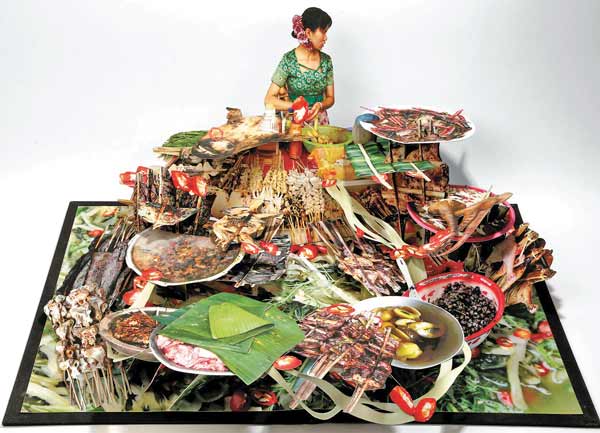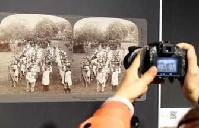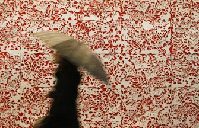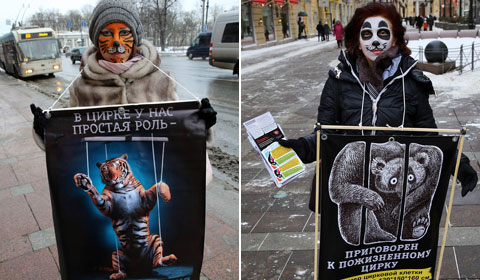Genes in her photos
Updated: 2014-02-07 09:52
By Kelly Chung Dawson (China Daily)
|
|||||||||||
 |
|
Colette Fu's photography popup books depict the traditions of Chinese ethnic groups. Provided to China Daily |
A Chinese-American artist celebrates her roots in a pop-up photography collection, Kelly Chung Dawson reports in New York.
In transit at a Chengdu train station in 1996, the photographer Colette Fu, then an English teacher traveling around China, spotted a group of Yi people wearing capes that marked their heritage. She approached them with a map, and signaled that one of them should point to their home. Fu's own mother was from the Yi ethnic group, so when the boy pointed to the Daliang Mountains, she decided to travel there. In the region's capital, by chance she met a man who shared her surname. He agreed to take her home to her mother's village, and although they barely shared the same language, she agreed to go. For 10 days they traveled to her ancestral home, where she was welcomed as though she had fallen from the sky. Her relatives sacrificed chickens, goats and finally a cow, thanking the gods that she had returned. A tree was planted in her honor.
And although her camera died shortly before arriving at the village, her memories of that week remain vivid because they changed the course of her life, she recalled recently in an interview with China Daily on We Are Tiger Dragon People, a new project of pop-up photography about Chinese ethnic groups.
Fu's books were on display at Brooklyn's LA Art Book Fair in New York, which ended on Feb 2. She will participate in the Asian Arts Initiative 20th Anniversary Exhibition that runs from Feb 7 to May 23 in Philadelphia.
"For the first time I really felt a sense of identity and pride in being connected with my heritage," says Fu, who grew up in New Jersey and Virginia. Before traveling to China, Fu had drifted, partying aimlessly and working restaurant jobs. Her heritage was more than unimportant; for years she had refused to eat Chinese food, she recalled with a laugh.
"For so many Chinese-Americans, there's a sense of being lost in feeling Chinese in America, but feeling American in China," she says. "As a child I was sensitive about being called a 'Chink' and in some ways, I ended up denying my culture. So when I was finally there in the village, even though I couldn't fully communicate in Yi, the experience completely changed me for the better."
Related Stories
Three shows put Chinese photography in the frame 2014-01-19 15:23
Zhu Jin's bark photographs 2014-01-15 15:38
Shooting blind 2014-01-03 10:14
A photo with legs 2013-12-31 07:44
Excellent animal photographic works 2013-12-11 16:42
Today's Top News
Trade frictions with the EU likely to grow
Xi, Putin vow stronger ties
Pollution dampens fireworks sale
US warns airlines about 'toothpaste bombs'
Dutch security services bug phones
President Xi leaves for Sochi ceremony
Vatican's child abuse record slammed
Schroeder accuses US of disrespect
Hot Topics
Lunar probe , China growth forecasts, Emission rules get tougher, China seen through 'colored lens', International board,
Editor's Picks

|

|

|

|

|

|







